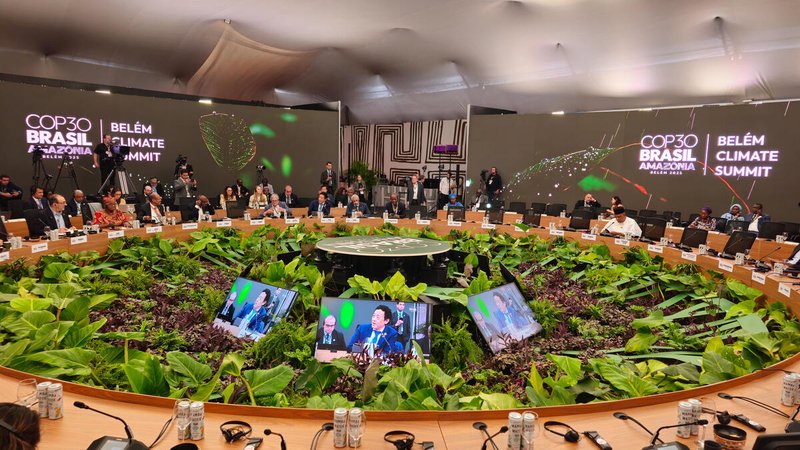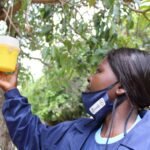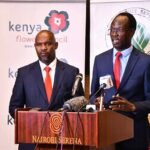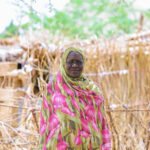World leaders gather in Belém, Brazil for the COP30. This year’s event has been framed “Implementation COP,” signaling the urgency of moving from negotiation tables to tangible results. Photo by Max Valencia/ FAO
By Zablon Oyugi November 13, 2025: As the United Nations Climate Change Conference (COP30) summit kicks off in Belém, Brazil, global attention is sharply focused on whether world leaders will finally transition from pledges to implementation.
This year’s gathering arrives amid frustration that the Paris Agreement commitments remain largely unmet and that the momentum from COP29 — which emphasised financing for climate adaptation — has yet to deliver.
According to UN climate officials, COP30 is being framed as the “Implementation COP,” signaling the urgency of moving from negotiation tables to tangible results.
Hosting the summit in the heart of the Amazon underscores both the urgency of protecting natural ecosystems and the moral imperative of including those who live closest to them.
Indigenous Peoples at the Forefront
One defining feature of COP30 is its heightened focus on Indigenous peoples and forest-frontier communities, especially given Brazil’s role as host.
With more than 3,000 Indigenous delegates expected — the highest ever at a UN climate conference — the summit showcases the role of traditional custodians of forests in combating climate change.
According to Brazilian organisers, the Amazon’s Indigenous communities are not just victims of climate change but vital partners in mitigation and adaptation.
Indigenous leaders are pushing for stronger land rights, recognition of ancestral stewardship and direct access to climate finance to sustain conservation.
The Belém setting, deep within the Amazon, offers these communities an unprecedented platform to call for protection of both people and planet.
By elevating their voices, COP30 acknowledges that achieving global climate goals depends on safeguarding forests and empowering those who protect them.
Unmet Promises of Paris and COP29
Ten years after the Paris Agreement, global warming continues to exceed the 1.5 °C target above pre-industrial levels.
According to the United Nations, fossil-fuel reliance remains high, and most countries are falling short of emission-reduction pledges.
COP29 in Baku established a framework for financing adaptation, yet many developing nations are still waiting for promised funds to materialise.
Reports ahead of COP30 indicate that the goal to mobilise US $1.3 trillion annually for developing countries by 2035 is unlikely to be met.
The gap between commitments and action is now a credibility test for the global climate process, especially for vulnerable nations.
UN Secretary-General António Guterres has urged leaders to “act, not talk,” warning that failing to deliver on past promises represents “a moral failure.”
Financing the Climate Transition
The adaptation financing gap is receiving special attention at COP30 as nations seek to turn pledges into measurable funding flows.
According to the Food and Agriculture Organization (FAO), agrifood systems could deliver one-third of global emission reductions but currently attract only 4 percent of climate-related finance.
FAO warns that neglecting food and agriculture in climate funding is “a lost opportunity” for both mitigation and resilience.
Without adequate support, food systems will remain vulnerable to droughts, floods and extreme heat, perpetuating hunger and rural poverty.
The call from FAO is clear — fund agrifood transformation now or risk undermining global climate and food-security goals simultaneously.
For developing countries, adaptation finance is not just about protecting crops but securing livelihoods, infrastructure and stability.
According to FAO, channeling finance to agrifood systems also delivers long-term gains through sustainable production and ecosystem preservation.
Investment and the Business of Adaptation
The International Fund for Agricultural Development (IFAD) argues that climate adaptation is not merely a cost but a sound investment.
According to IFAD, every dollar invested in small-scale farmers’ adaptation yields over ten dollars in social, economic and environmental returns.
This evidence reframes adaptation as a profitable venture for both private investors and development partners.
At COP30, IFAD is urging governments and financiers to integrate adaptation into mainstream portfolios rather than treat it as aid.
Rural communities, which produce much of the world’s food, are viewed as key partners in building climate-resilient economies.
Climate Justice for Africa
For Africa, COP30 represents a defining moment to demand climate justice, fair access to finance and recognition of its renewable potential.
According to African Union Commission (AUC) Chairperson Mahmoud Ali Youssouf, the continent holds 40 percent of global renewable potential but receives less than 12 percent of climate finance.
The AUC insists that Africa arrives at COP30 “with conviction,” determined to ensure that commitments are matched with resources and technology.
The African Development Bank Group (AfDB) has reaffirmed its commitment to turning “promises into progress,” piloting instruments that support adaptation plans.
AfDB President Sidi Ould Tah emphasised that translating global pledges into bankable projects is key to Africa’s just energy transition.
From Africa’s perspective, climate action is both economic and existential, as the continent warms at nearly twice the global average.
As the world watches Belém, the question remains whether this COP will finally bridge the gap between promise and progress.







